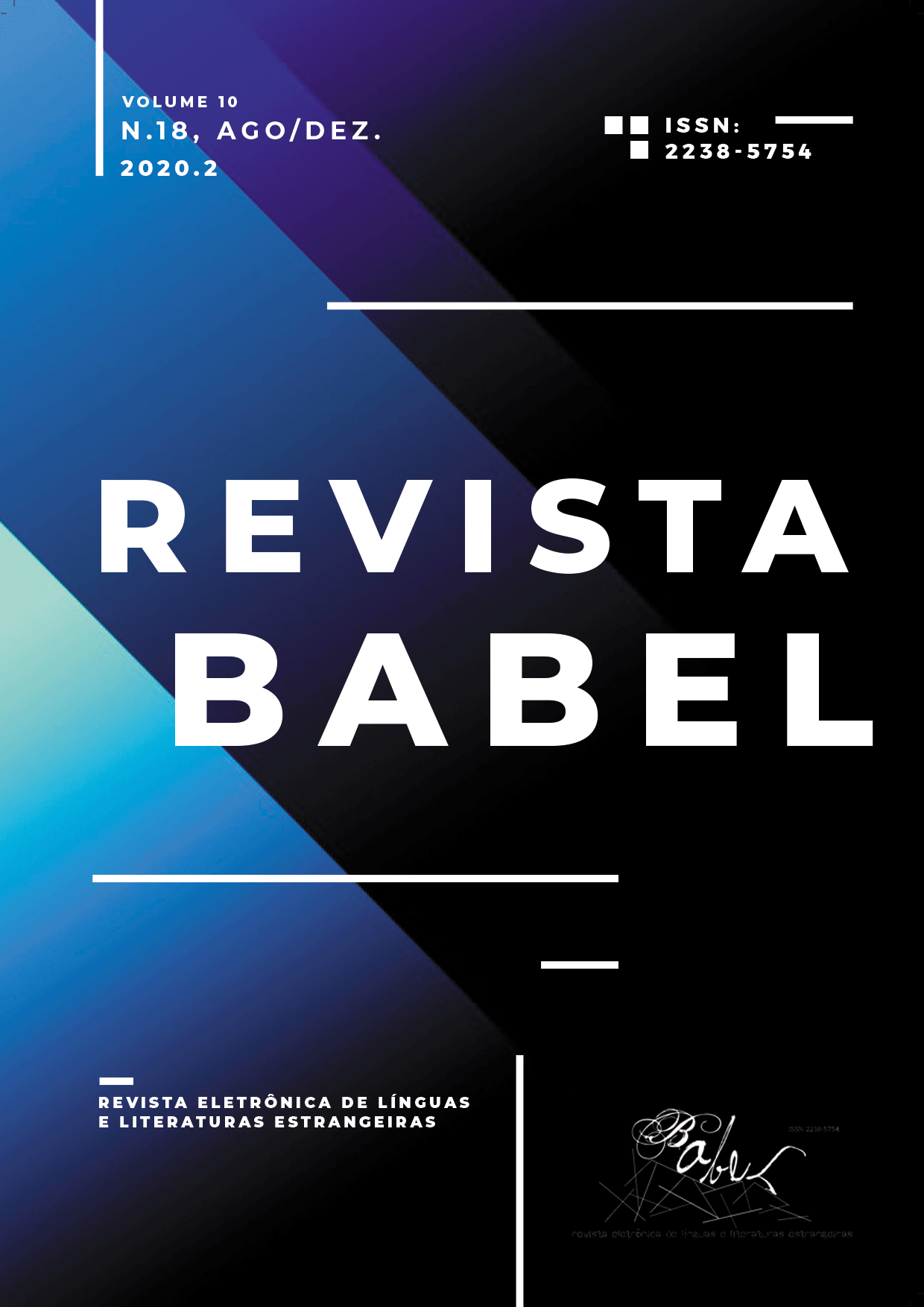Experience report about academic monitoring of the English language subject in a Brazilian university
DOI:
https://doi.org/10.69969/revistababel.v10i2.9361Keywords:
Academic monitoring, Teach-learning, English languageAbstract
Academic monitoring carried out in the higher education is a teaching and learning modality that provides an integrated education to the student. The academic monitoring also establishes a mutual cooperation and a relationship between the student-monitor and the teacher-supervisor and promotes the technical and pedagogical experiences. As a monitor, the student learns a lot through the interpersonal knowledge exchange. It is also developed relationship with students, increasing their friendship circle in the academic environment, a factor of utmost importance to the student/monitor’s well-being and progress. Thus, this paper intends to report the monitoring experience in the English language subject, offered in the Interdisciplinary Bachelor degree in Health, at Recôncavo of Bahia Federal Univerisity. It is a qualitative study, in which we used our own memories memories related with the classroom, to our conducts and the ones adopted by the students as well as it was realized a bibliographic survey. Some activities realized, the positive results gotten throughout the practice, as well as the difficulties experienced are part of this report. It is of fundamental importance to reflect on the academic monitoring in higher education, because it influences on students’ personal, academic and professional progress as well as on the development of new perspectives.
Downloads
References
ANJOS, F. A. "Passei o semestre todo estudando o verbo to be": atitudes, (des)motivação e orientação para aprender inglês de alguns bacharelandos da UFRB. Tese de Doutorado. 254 f. Universidade Federal da Bahia (UFBA). Salvador, 2018.
ANJOS, F. A. Princípios Fundamentais para o Ensino e a Aprendizagem do inglês como língua Global. Revista de Letras, Curitiba, v. 19, n. 25, p. 114-132, jan./jun. 2017.
ANJOS, F. A. Ideologia e omissão nos livros didáticos de língua inglesa. Cruz das Almas: Editora UFRB, 2017.
ASSIS, F. de. et al. Programa de monitoria acadêmica: percepções de monitores e orientadores. Revista de Enfermagem UERJ, Rio de Janeiro, 14, (3), jul./set., 2006.
BARCELOS, A. M. F. Finding my own voice and accent. Humanizing Language Teaching, v. 10, 3. 2008.
BHOWMIK, Subrata Kumar. World Englishes and English language teaching: a pragmatic and humanstic approach. In: Colomb. Appl. Linguist. Journal, vol 17, no. 1, p. 142-157, 2015.
FIGUEIREDSS, T. da C; FRIGO, L. F. Relato de experiência: Percepções acerca da monitoria acadêmica na disciplina de fisioterapia e a saúde da mulher. Revista de Epidemiologia e Controle de Infecção do Hospital Santa Cruz, Rio Grande do Sul, ano IV, volume 4, número 1, jan./mar, 2014.
FREIRE, P. Pedagogia da autonomia: saberes necessários à prática educativa. São Paulo: Paz e Terra, 1996.
HAAG et al. Contribuições da monitoria no processo ensino-aprendizagem em enfermagem. Revista Brasileira de Enfermagem (REBEn), Brasília, 64, (2), p. 215-220, mar./abr. 2008.
JORDÃO, C. Decolonizing identities: English for internationalization in a brazilian university. In: Interfaces Brasil/Canadá. Canoas, v. 16, n.1, p. 191-209, 2016.
LIRA, M. O.; NASCIMENTO, D. de Q.; SILVA, G. C. de L.; MAMAN, A. dos S. de. Contribuições da monitoria acadêmica para o processo de formação inicial docente de licenciandos em ciências biológicas da UEPB. II CONEDU: Congresso Nacional de Educação, 2015.
MATOSO, L. M. L. A importância da monitoria na formação acadêmica do monitor: um relato de experiência. Catussaba Revista Científica da Escola da Saúde da Universidade Potiguar, Rio Grande do Norte, ano 3, nº 2, abr./set. 2014
SILVA, R.N.; BELO, M. L. M. Experiências e reflexões de monitoria: contribuição ao ensino-aprendizagem. Scientia Plena, vol. 8, n. 7, p. 1-6, 2012.
Downloads
Published
How to Cite
Issue
Section
License
Os autores detém os direitos autorais sem restrições, porém ao submeter os originais, concordam em transferir a este periódico os direitos da primeira publicação. Isto deve ser informado em caso de nova edição do texto. As produções que derivarem deste material, devem obrigatoriamente citar a fonte. Os textos publicados nesta revista, salvo indicações contrárias, encontram-se sob uma licença Creative Commons Atribuição 4.0 Internacional.

